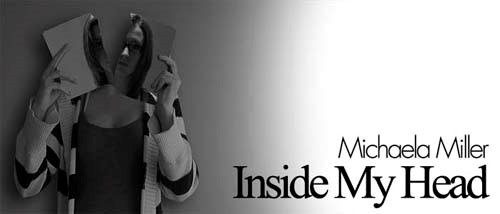It’s astounding that television has gone completely downhill in two decades. I remember watching quality cartoons and I remember watching scary, late night shows that actually made me think. There used to be multiple shows with a relatable protagonist that turned into a realistic role model. Since tv was already popular when I was younger, it seemed that show creators then actually put extensive work into their shows; their work. Every household in our country has at least one television, so it makes sense that the best way to reach people is through that screen. However, now our content has gone downhill; our content creators no longer care about quality. We once had family shows that dealt with real life problems by real ways. They’ve been replaced by reality tv, twisting our younger generations’ minds to believe that true role models are “real people” like the Kardashians or try-hard pop bands like “The Weekend.”
If you take a look at the definition of role model provided to us by psychology, it states, “A person or group who knowingly or unknowingly inspires others to imitate their persona; they serve as an example of the values, attitudes and behaviours associated with a specific role.” Here is where people tend to get confused. A role model, by this definition, can be either positive or negative. The traditional notion for a role model is positive. We want our young to be raised by positive role models who have high standards, big dreams, uncompromising morals and a pleasant demeanour. Our “real” role models now have low standards, high expectations, loud mouths and thoughtless actions.
When I was younger and heavily influenced by my environment, I had a multitude of fictional role models. For example, I had Sailor Moon; a seemingly whiny young girl with blonde meatball-pigtails as a hairstyle that attended an average school with average friends. She finds out she is actually a reincarnated moon guardian, sworn to protect the galaxy with her female friends. When I watch the show now, it seems silly, but the lessons remain the same. This girl actually dealt with gender injustices, peer pressure, bullying, etc just as all girls deal with, only in a visually appealing and fantastical way to make it a great cartoon. Or maybe another girl like Kim Possible, who constantly thwarted her misogynistic foes with out-of-the-box tactics alongside her nervous sidekick Ron Stoppable and his cute naked Mole Rat, Rufus. This show constantly made use of the word impossible, where this female hero would retort, “Actually that’s Kim Possible, but that’s a common mistake.” Her sassy lines inspired girls to be more determined and to take charge. Sure, they were just shows on television, but to kids shows are influential, especially since they seem to be a babysitter sometimes.
Remember That’s So Raven? She was an African-American girl living in San Francisco, attending high school and getting into trouble. One episode stands out for me in particular. This young lady becomes the subject of racial discrimination when she tries to apply for work at one of her favourite clothing shops. In 25 minutes she deals with it in a hilarious way, and ends up catching the discriminator in the act but she actually deals with a real life problem. This show was on Disney channel. The shows on there now are mostly of pre-teens becoming famous by means of singing or dancing. This doesn’t happen often in real life. Oh, and these pre-teens are sarcastic and disrespectful to their parents, something I would have never gotten away with.
How about reality tv? Remember when Fear Factor was big? People used to do the most disgusting and scary things in order to win. Now? We have shows that cram loud people into houses so we can watch them argue and plot against each other. We call that entertainment? Or what about our beloved music channels? Remember when MTV was actually music? Now it’s a channel filled with teen soap operas, showcasing larger than life personalities getting pregnant every week and breaking up every other week.
What really gets me is that we fall for it. We perpetuate it. We watch these shows because they are an escape from our daily, real-life struggles. We watch rich people deal with what we consider to be petty problems, as they deal with them seriously. We tune into these channels, showing the producers that this is what we want to see more of. I know I don’t. I miss old shows like “All in the Family” that dealt with racism, growing pains and tradition. I miss “8 Simple Rules.” That show dealt with real life problems of growing up with siblings. I miss “Bewitched,” that actually dealt more with in-laws and neighbours than it did with magic.
In an effort to become modern and consumer-centric, we’ve given up values and replaced them with superficial grandeur.
What once were real heroes and role models have turned into whiny celebrities vying for attention.




